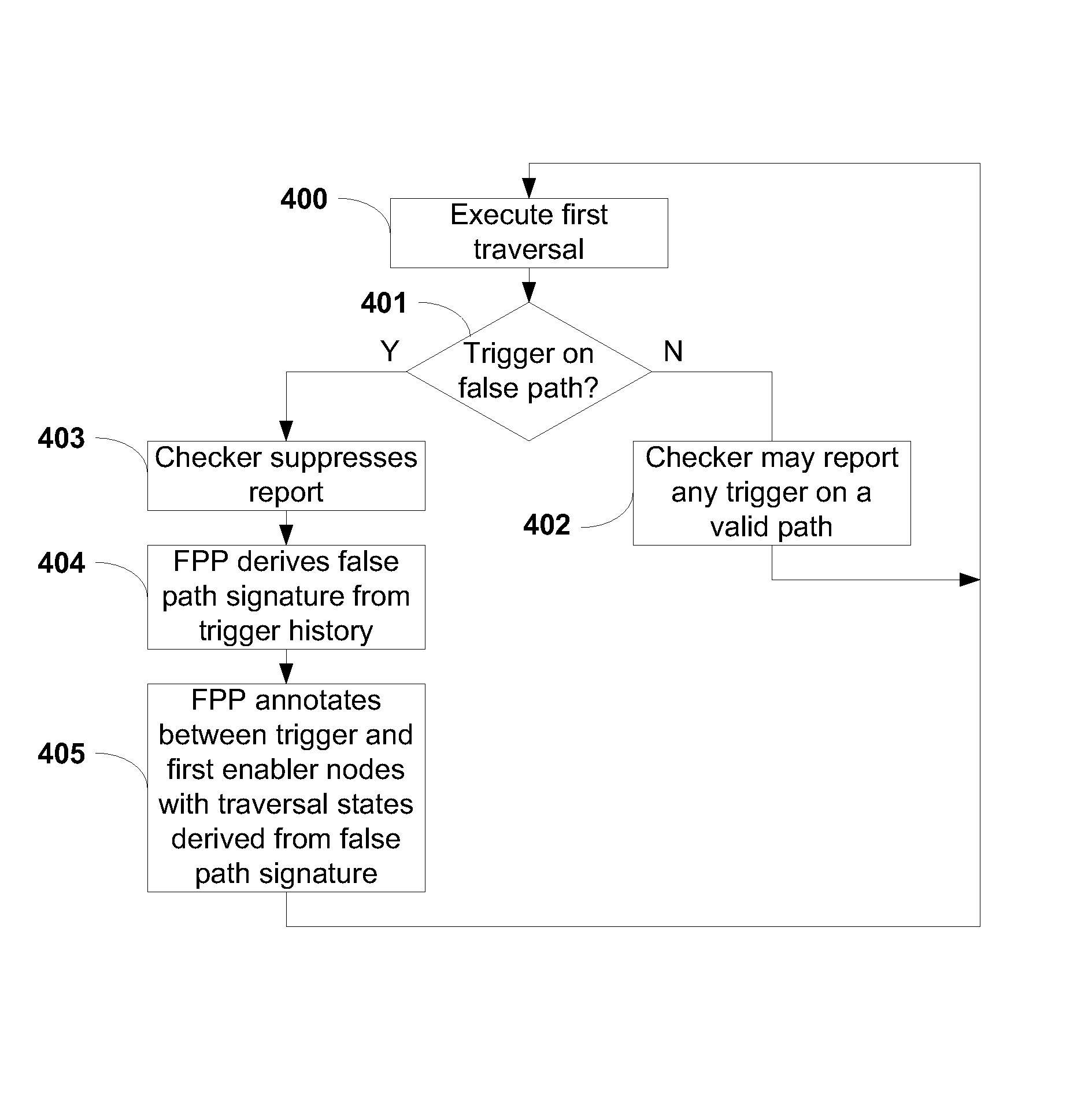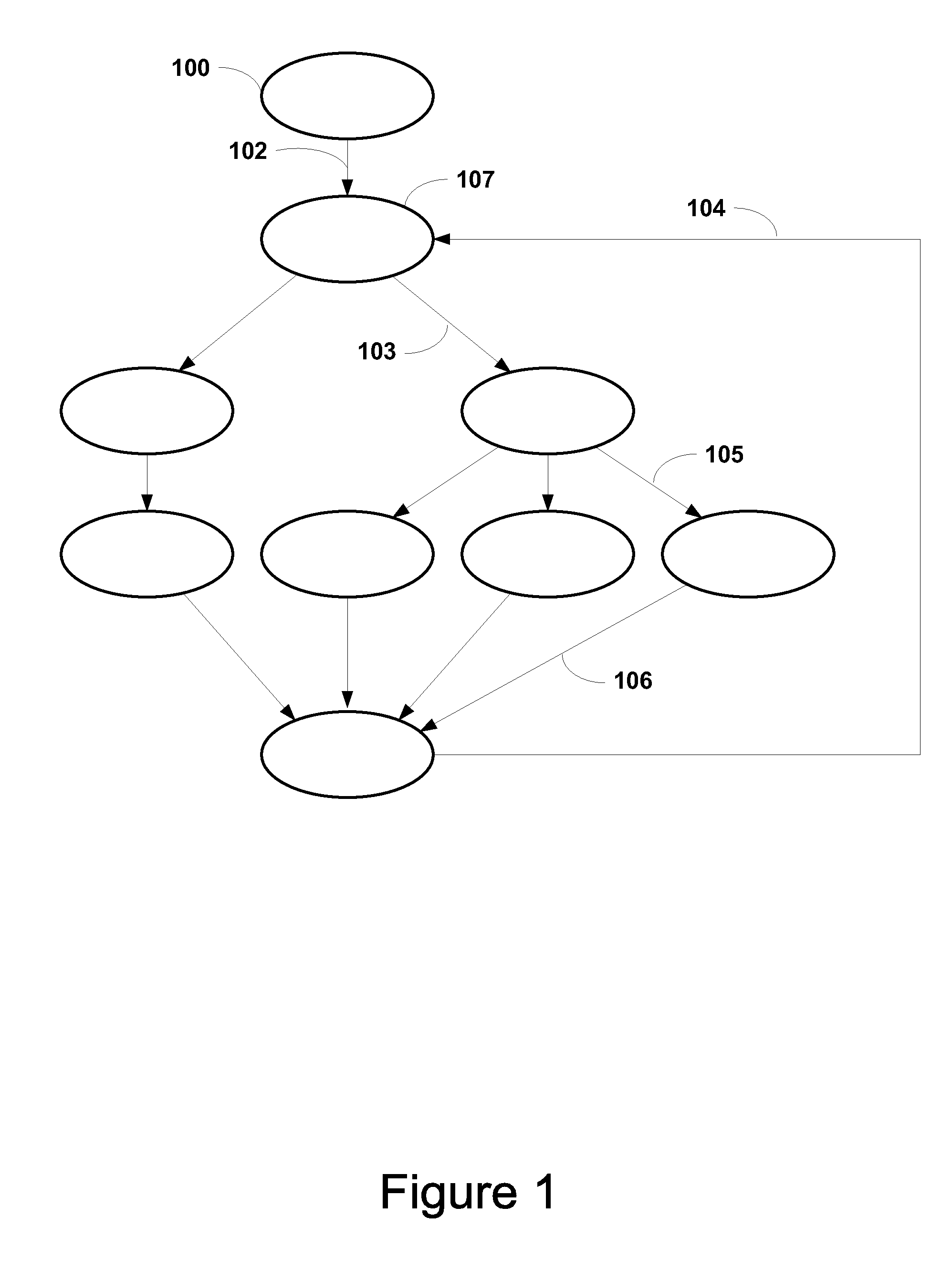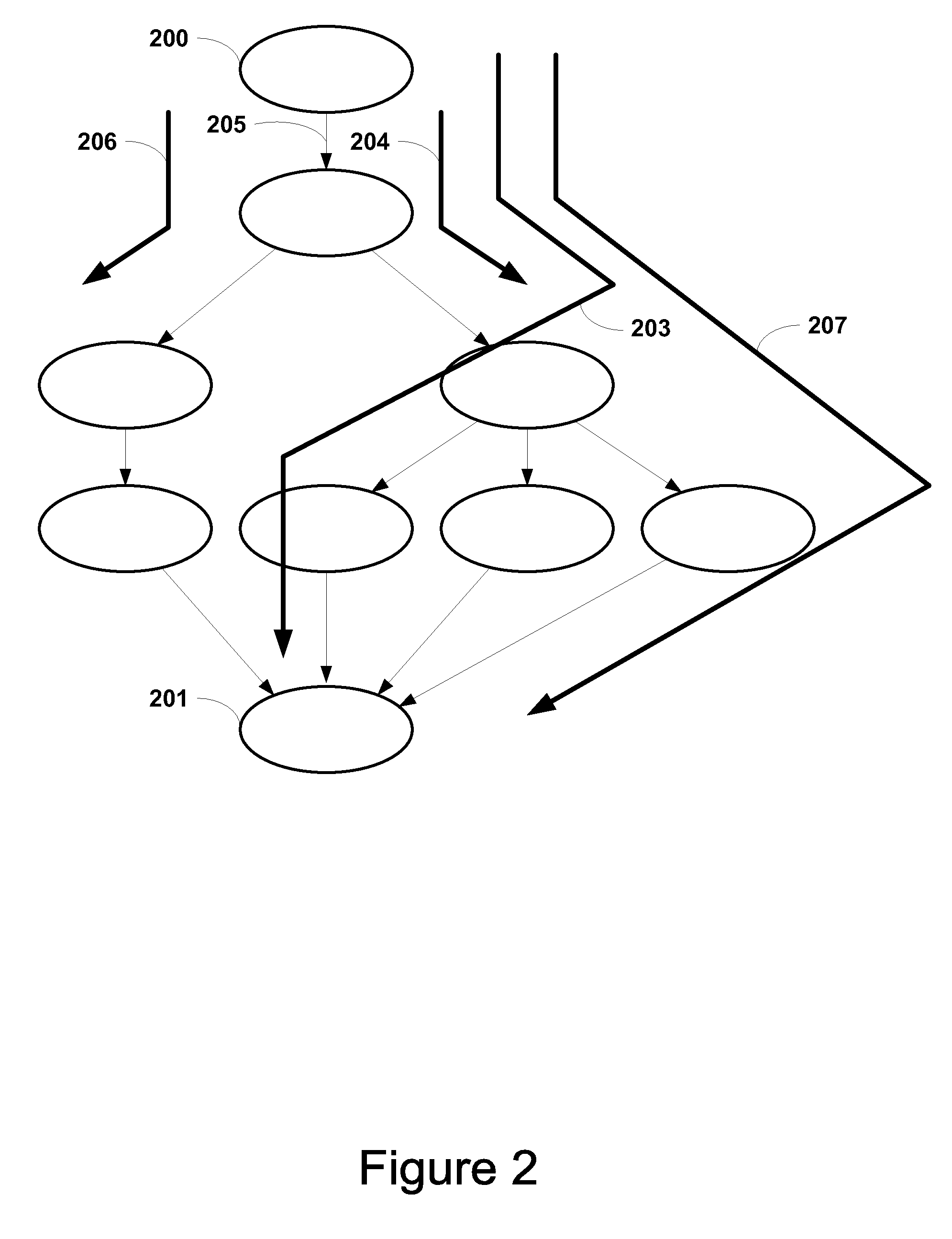Methods for selectively pruning false paths in graphs that use high-precision state information
a graph and false path technology, applied in the field of directed acyclic graphs, can solve the problems of spurious analysis, inconvenient traversal of checkers, and invalid analysis reported by analyzers
- Summary
- Abstract
- Description
- Claims
- Application Information
AI Technical Summary
Benefits of technology
Problems solved by technology
Method used
Image
Examples
Embodiment Construction
[0078]A False Path Pruner (FPP) is provided that traverses a DAG at the same time as one or more checkers traverse the DAG. All checkers and the FPP traverse the DAG in concert, and at any given time, all checkers and the FPP will visit the same node. Defects and artifacts of interest to a checker will be referred to herein as triggers. Detection and reporting of all triggers existing on non-false paths, without reporting false positives, may be accomplished through the following exemplary embodiment of the invention.
[0079]A first traversal of a path occurs along which a trigger may be encountered. FIG. 4 illustrates an example of what may happen along this first traversal in accordance with embodiments of the invention. In Block 400, each node is visited along the path as the checker looks for triggers. Decision 401 indicates that upon encountering a trigger, the FPP tests the path to see if the path is false in a manner described below. If the node does not contain a trigger on a ...
PUM
 Login to View More
Login to View More Abstract
Description
Claims
Application Information
 Login to View More
Login to View More - R&D
- Intellectual Property
- Life Sciences
- Materials
- Tech Scout
- Unparalleled Data Quality
- Higher Quality Content
- 60% Fewer Hallucinations
Browse by: Latest US Patents, China's latest patents, Technical Efficacy Thesaurus, Application Domain, Technology Topic, Popular Technical Reports.
© 2025 PatSnap. All rights reserved.Legal|Privacy policy|Modern Slavery Act Transparency Statement|Sitemap|About US| Contact US: help@patsnap.com



